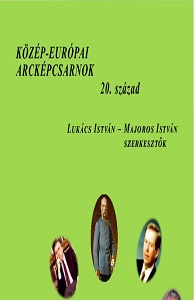George Frederick Cushing és Magyarország a hidegháború korában
George Frederick Cushing and Hungary in the Cold War Era
Author(s): Anita Madarász
Subject(s): Cultural history, Diplomatic history, Political history, International relations/trade, Interwar Period (1920 - 1939), WW II and following years (1940 - 1949), Post-War period (1950 - 1989)
Published by: Eötvös Loránd Tudományegyetem, Új-és Jelenkori Egyetemes Történeti Tanszék
Keywords: School of Slavonic and East European Studies; George Frederick Cushing; Hungarian intelligence service; George Henry Bolsover; Rus-sian language teaching; infiltration; Cushing–case;
Summary/Abstract: The cultural aspect of the Cold War served, supplemented and even overwrote the political maneuvers in many areas. It created such oppor-tunities for the West which made a significant contribution to map the communist countries and make the most effective infiltration possible; of course, this was true in the contrary too, since it was an excellent intelli-gence field also for the East. In this essay, I am dealing only with a smaller but inevitably important segment of this area through the example of the School of Slavonic and East European Studies (SSEES) and Professor George Frederick Cushing (1923-1996). In this case, education did not conceal mutual, general knowledge, since such contacts are related to the history of intelligence in many ways.
Book: Közép-európai arcképcsarnok. 20. század
- Page Range: 257-274
- Page Count: 18
- Publication Year: 2018
- Language: Hungarian
- Content File-PDF

